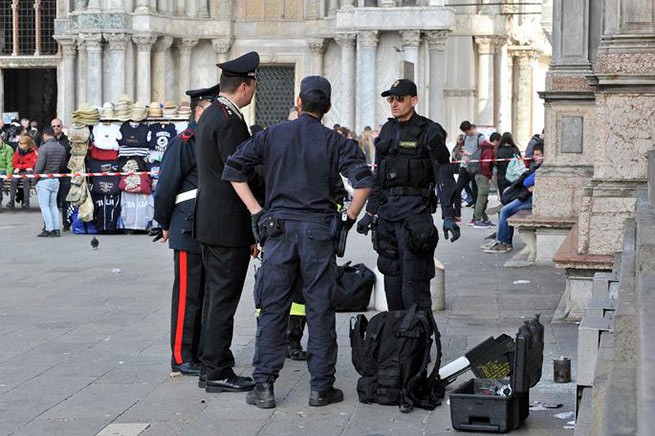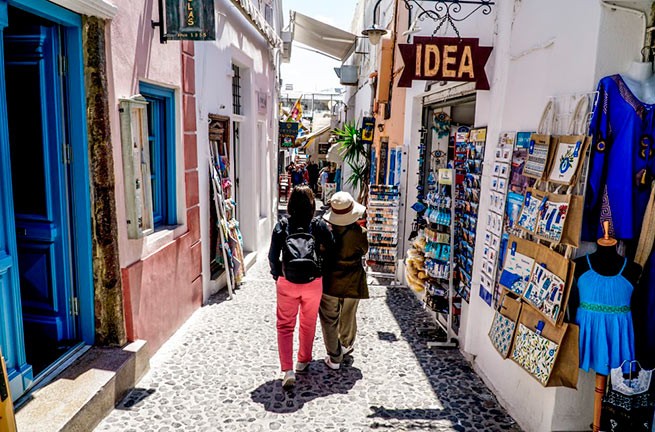The implementation of the project for the interconnection of power grids between Greece and Egypt will be a decisive test for the Greek-Turkish relations in the coming months, said the observer of the pro-government publication “Katimerini” Vasilis Nedos.
The cable to be laid for connection of the electric grids of Greece and Egypt, will pass through the area that is de facto demarcated between Athens and Cairo since August 2020 and is a guarantee of the international legitimacy of the project. The problem is that, from Turkey’s point of view, such an interconnection between Greece and Egypt would pass through the areas delimited between Ankara and the previous Libyan national unity government.
Ankara’s extreme rhetorical reaction in recent days testifies to the irritation of the Turks, but most of all, the Erdogan administration is enraged by Cairo’s attitude to this project. From Athens, Egyptian President Abdel Fattah el-Sisi expressed a desire to export his country’s natural gas to Europe, with Greece as the first entry point.
Cairo is not interested in Turkey for reasons beyond political issues. The abundant reserves of natural gas in Egypt, as well as in Israel and the Republic of Cyprus, as a whole, could create an alternative gas source for the EU with a market capacity of more than 600 million people, as well as create a stable market for Egypt. If we add to this the huge potential for solar power generation in the desert (as mentioned by Prime Minister Kyriakos Mitsotakis), it becomes clear that Egypt can be a reliable alternative energy source for Europe.
Libyan-Turkish memorandum on the division of zones of economic interests from 2020, in which part of the territory of Greece “accidentally” fell
Turkey’s reaction is related to the fact that, despite Ankara’s attempts to reunite with Cairo, the Sisi government sets a number of unbreakable conditions that Recep Tayyip Erdogan cannot fulfill. The first concerns, of course, the severing of ties with the Muslim Brotherhood. The second, and the main one, concerns the unwavering position of the Egyptians on the Libyan issue. Cairo said the Turks would have to leave Libya entirely to reach an agreement.
This factor seems extremely difficult to satisfy on the part of Erdogan, who presents Libya at home as an outstanding example of the successful implementation of neo-Ottomanism, but also dangerous for the Greek interests of the ideology called “Blue Homeland”. A very clear position of such subjects as the United States on the issue of Libya, i.e. the reference to the a priori need for the withdrawal of all foreign forces and their mercenaries from the country closes any window that could be used in this direction by Erdogan to play the “anti-Russian” card.
Experienced observers are concerned that Ankara will test the Greek-Egyptian agreement to prove that the Blue Homeland is not an abstract ideology, but a reality that Turkey is ready to fight for. Already in the reaction of Ankara (publicly and behind the scenes), the laying of the cable is seen not as an abstract step, but as a challenge to the continental shelf, that is, to Turkey’s sovereign rights, which from the very beginning proclaims a more dynamic movement in their defense.
For Athens, of course, there can be no question of retreat, since it is an agreement that follows the boundaries of a perfectly legal course (from the point of view of Greece), within a territory that has been demarcated in a way that is unconditionally compatible with international law and has full force. However, the experience of the Nautical Geo pipeline research attempt has become a major irritant to Turkey. And now, if Ankara decides to move forward on this issue, it will have to face not only Greece, but also Egypt.
Libyan-Greek memorandum on the division of zones of economic interest from 2020
South of Crete
One of the main scenarios under consideration is the possibility of a long-term announcement of Ankara’s exploration in southern Crete to create obstacles to any cable-laying operation. This, in fact, prepares Athens for the possibility of developing a scenario a la “Orus Reis”, this time with the participation of a third country – Egypt. The fleet, of course, is prepared and in excellent condition, which is the merit of the experienced leadership of the Navy, despite the difficulties associated with the fact that the backbone of the frigate command often reaches and exceeds forty years.
At the same time, Athens is preparing for the military specialization of the Greco-French defense pact. The head of GEETHA (General Staff of the Armed Forces of Greece) Konstantinos Floros was in Paris for two days, Thursday and Friday, where he held substantive discussions in addition to the symbolic flight on the Rafale fighter. Floros conducted these with his French counterpart Thierry Burcard to begin planning for the presence, position and station of French troops in Greece, as well as joint exercises. In 2022, according to the first information, several small joint trainings are expected, as well as a large two-way interdisciplinary exercise.
Communication channels are open
In this environment, it is clear that Athens wants to keep its channels open. In addition to the possibility of constant communication between the diplomatic adviser to the Prime Minister Eleni Sorani and Ibrahim Kalin, attempts are being made to keep the so-called “positive agenda” on the surface. The two responsible deputy ministers, Costas Frangogiannis and Sedat Onal, will meet on this issue in early November. However, perhaps the most important meeting of recent days has been the meeting of the Minister of National Defense Nikos Panayotopoulos with his Turkish counterpart Hulusi Akar, on the sidelines of the NATO ministerial meeting in Brussels. Mr. Akar is a staunch supporter of intergovernmental balance in Turkey and one of the most trusted interlocutors in the West.






More Stories
Greece will not give Ukraine either S-300 or Patriot (video interview)
MP beat up his colleague in the Greek Parliament
EU Commission warns Greece and Cyprus against fraud